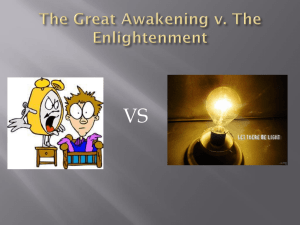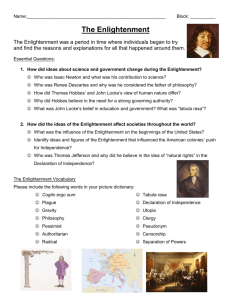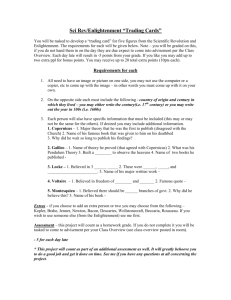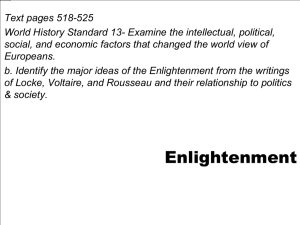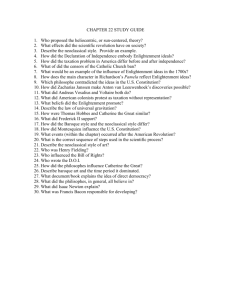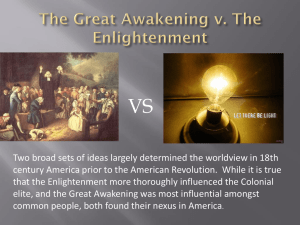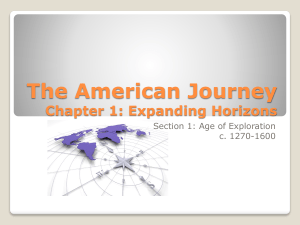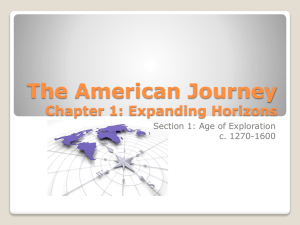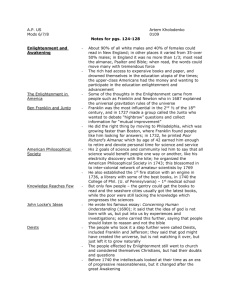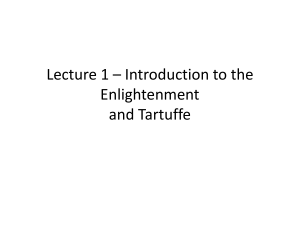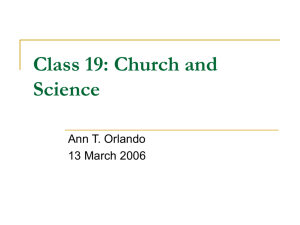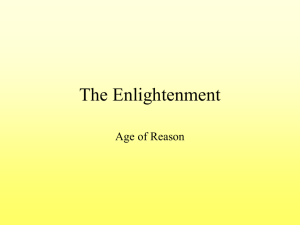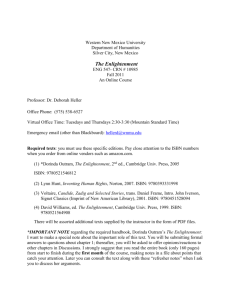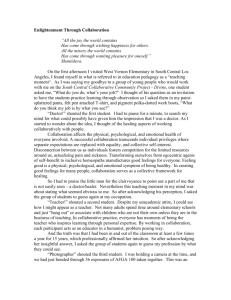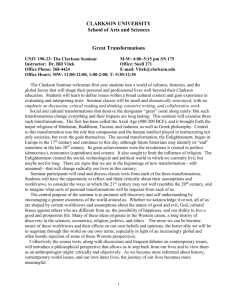The Cultural Transformation
advertisement
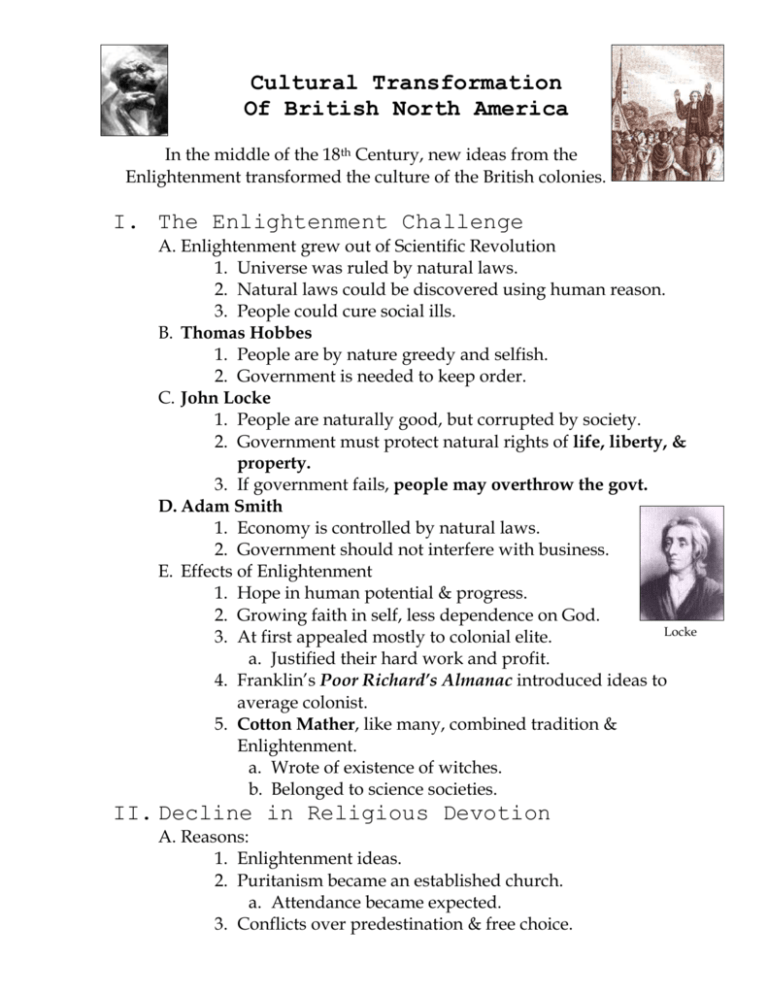
Cultural Transformation Of British North America In the middle of the 18th Century, new ideas from the Enlightenment transformed the culture of the British colonies. I. The Enlightenment Challenge A. Enlightenment grew out of Scientific Revolution 1. Universe was ruled by natural laws. 2. Natural laws could be discovered using human reason. 3. People could cure social ills. B. Thomas Hobbes 1. People are by nature greedy and selfish. 2. Government is needed to keep order. C. John Locke 1. People are naturally good, but corrupted by society. 2. Government must protect natural rights of life, liberty, & property. 3. If government fails, people may overthrow the govt. D. Adam Smith 1. Economy is controlled by natural laws. 2. Government should not interfere with business. E. Effects of Enlightenment 1. Hope in human potential & progress. 2. Growing faith in self, less dependence on God. Locke 3. At first appealed mostly to colonial elite. a. Justified their hard work and profit. 4. Franklin’s Poor Richard’s Almanac introduced ideas to average colonist. 5. Cotton Mather, like many, combined tradition & Enlightenment. a. Wrote of existence of witches. b. Belonged to science societies. II. Decline in Religious Devotion A. Reasons: 1. Enlightenment ideas. 2. Puritanism became an established church. a. Attendance became expected. 3. Conflicts over predestination & free choice. 4. Concept of God as forgiving rather than punishing. III. The Great Awakening A. Started by Jonathan Edwards 1. Young people were refusing to attend church. 2. Edwards preached to them using passionate emotion. B. Similar revivals broke out throughout New England. 1. George Whitefield among most famous. 2. Followers called for purity of established Puritan church. C. Conflict began between “New Lights” & “Old Lights”. 1. New Lights a. Predestination. b. Against new rational look at religion. 2. Old Lights a. Against emotional preaching b. Against personal relationship with God. D. Revival attracted slaves in the South. E. Had most effect on young people & men. F. Legacy: 1. Offered first chance for public debate for many. 2. People began to believe their opinions mattered. 3. Empowered people to question their leaders.

